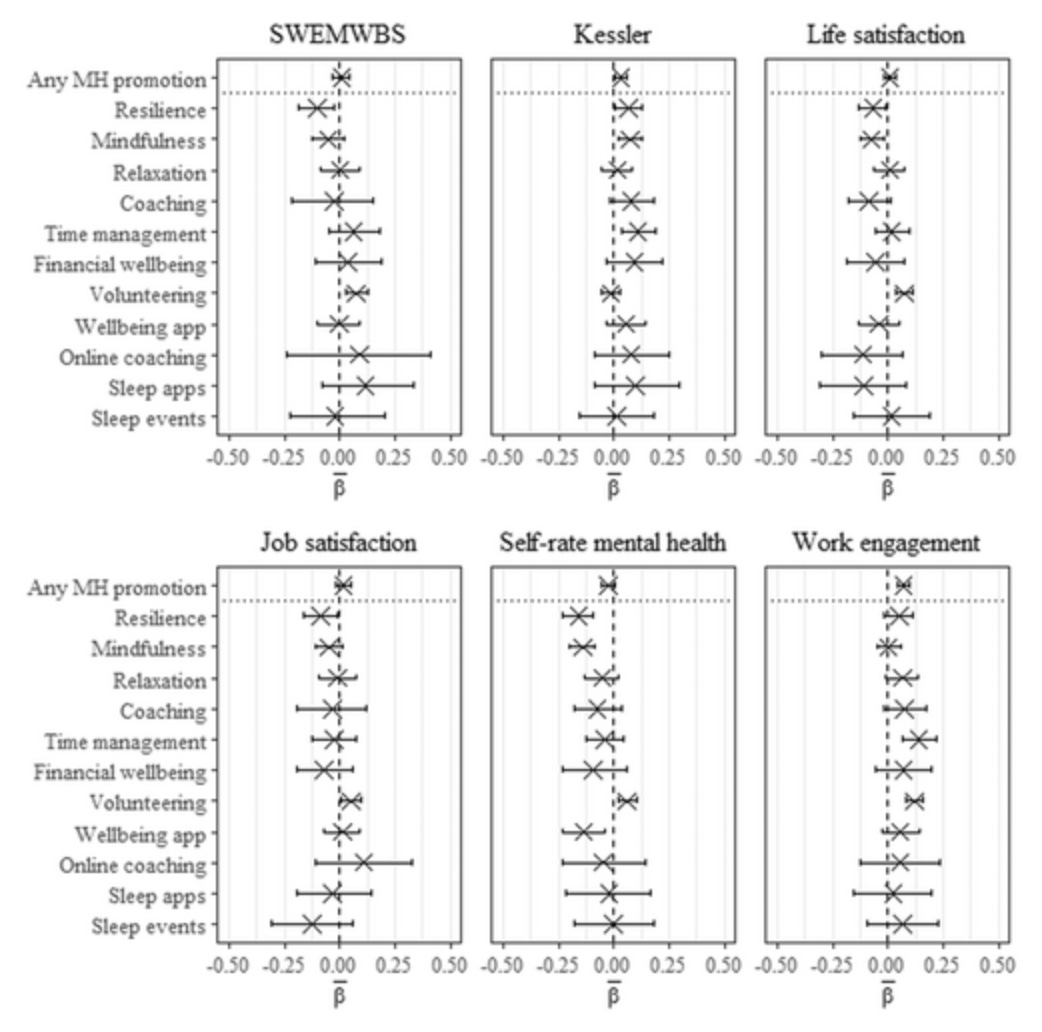A sociologist named William J. Fleming just published a great paper in the Industrial Relations Journal entitled “Employee well-being outcomes from individual-level mental health interventions: Cross-sectional evidence from the United Kingdom.”
In it, he analyzes data from Britain’s Healthiest Workplace, a yearly survey of thousands of British workers and hundreds of organizations. The survey asks workers whether their employer offered any mental health/well-being programs and whether they had participated in one or more in the past year. The results suggest that these programs did nothing to increase worker well-being on average. This is the abstract:
Initiatives that promote mental well-being are formally recommended for all British workers, with many practices targeting change in individual workers' resources. While the existing evidence is generally positive about these interventions, disagreement is increasing because of concerns that individual-level interventions do not engage with working conditions. Contributing to the debate, this article uses survey data (N = 46,336 workers in 233 organisations) to compare participants and nonparticipants in a range of common individual-level well-being interventions, including resilience training, mindfulness and well-being apps. Across multiple subjective well-being indicators, participants appear no better off. Results are interpreted through the job demands–resources theory and selection bias in cross-sectional results is interrogated. Overall, results suggest interventions are not providing additional or appropriate resources in response to job demands.
Looking at a variety of classes, programs, and apps offered by employers, Fleming found that most of them had little to no impact on measures of well-being or workplace satisfaction. More specifically, he found no difference between those who did and didn’t participate in relaxation practices, time management, coaching, financial well-being programs, well-being apps, online coaching, and sleep apps. He also found that those who participated in mindfulness and resilience programs fared worse on important measures, while workplace volunteering opportunities seemed to have small but consistent positive effects.
Given that the survey is cross-sectional, Fleming discusses the possibility that these results are driven by selection bias, with less mentally healthy individuals being more likely to opt into these programs, driving down the well-being of those within them. While he finds no differences in well-being from program participation among those who reported feeling unwell due to work-related stress in the past year, selection may still play a role in explaining the results.
While there may not be long-term benefits to well-being for people who participate in corporate mental health programs, it still might be enjoyable, relaxing, or educational in the short term. Of course, most corporations invest in mental health programs because they think it will save them money down the line, and don’t actually care whether Paul from accounting felt better for 24 hours after taking a mindfulness class.
Fleming concludes the paper by stating what I think most people, other than corporate consultants, obviously know to be true. If you want people to be happier and less stressed at work, it’s better to make work less stressful rather than offer people mental health treatments to take the edge off their jobs. “Organisational interventions, such as changes to scheduling, management practices, staff resources, performance review or job design, appear more beneficial for improving well-being.”
Read the full paper here.







http://tinyurl.com/po0pss
I'm particularly LOLing at the online coaching results, that's quite a spread.
: Disapponited at no pay rise yet again this year
HR: Here's a link to a sympathetic bot. You're welcome.